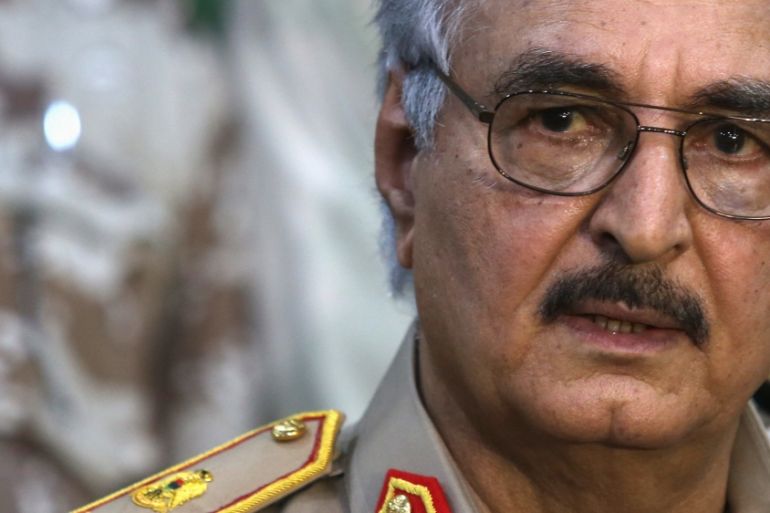Libya government in Tobruk votes to return to UN talks
However, UN-recognized body say it will only meet for talks if it is recognised as the country’s sole government.

Libya’s UN-recognised government has voted to return to UN-brokered talks on the future of the crisis-hit country, a week after suspending its participation, a politician has said.
The motion to resume the negotiations was adopted at the end of a meeting between members of parliament and the UN’s special envoy to Libya, Bernardino Leon, Abu Bakr Beira told the AFP news agency on Monday.
However, the Tobruk-based government says it will meet for talks only if it is recognised as the sole government.
Libya is mired in a conflict pitting the UN-recognised government, against a legally installed government in Tripoli, originally set up by an armed faction known as Libya Dawn that took over the capital Tripoli last summer.
The decision to suspend participation in the talks had come days after 40 people were killed in suicide car bombings in the eastern town of al-Qoba claimed by the Islamic State of Iraq and the Levant (ISIL) group.
Haftar appointment
On Monday, the Tobruk-based government also confirmed once-retired Libyan General Khalifa Haftar as army commander for its administration.
“The House of Representatives has appointed General Khalifa Belqasem Haftar as top military commander,” said Tarek Saqer Juroushi, deputy head of the defence committee.
He said Haftar had been promoted to lieutenant-general, adding that he would be sworn in on Tuesday or Wednesday.
The decision could complicate the UN talks to end the fighting in Libya.
Libya has been awash with weapons since the 2011 uprising that toppled Muammar Gaddafi, and opposing militias have since been battling for control of its cities and oil wealth.
A former general who helped Gaddafi come to power only to fall out with him in the 1980s, Haftar has become one of the most divisive figures in post-revolution Libya.
He joined the 2011 rebellion against Gaddafi and re-emerged on the political stage last year.
Last May, he began a self-declared war against militias in the eastern city of Benghazi.
He gained support from some Libyans tired of their country’s chaos, but also criticising air strikes and attacks on civilian airports and sea ports.
Haftar has merged his irregular forces with army troops in the east to fight disparate armed groups. But he has also targeted forces loyal to the Libya Dawn armed faction.
Air strikes
Meanwhile, forces from Libya’s internationally recognised government carried out air strikes on Maitiga airport in Tripoli and on an airport in Misrata town on Tuesday to retaliate against rival forces controlling the capital, a security official said.
Saqir El-jaroshi, air force commander for the recognised government, said the strikes were in response to attacks on Zintan airport by forces allied to the Libya Dawn group, which took over Tripoli last year and set up its own government.
A source at Maitiga airport in Tripoli said the strikes had hit an area near the runway, but did not cause any major damage.